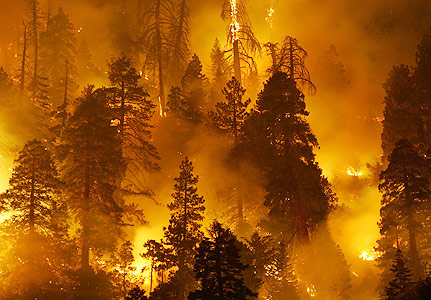Assessment impacts and adaptation options to forest fires


Source: http://earthsciencea.wikispaces.com
The projected decrease in summer precipitation in southern Europe and the increase in the frequency of summer droughts will probably induce greater risks of forest fires, ultimately resulting in strong impacts on natural resources and ecosystem stability, with consequent direct and indirect economic losses. Active forest and fire management practices can counteract the impacts of a changing climate to some extent. This case study will focus on assessment of the forest fire risk in Europe, the regional release of CO2 and aerosol as consequence of fires, and changes in spatial pattern of fire risk level (e.g. which areas that currently have low fire risk will move into a high risk category) with respect to a range of climate change scenarios. Potential adaptation options (e.g early forest fire detection systems, better allocation of firefighting resources, prescribed burning, etc.) will be proposed and discussed with relevant stakeholders.
The research leading to these results has received funding from the European Community’s Seventh Framework Programme (FP7/2007-2013) under grant agreement no. 244012
(0) Comments
There is no content